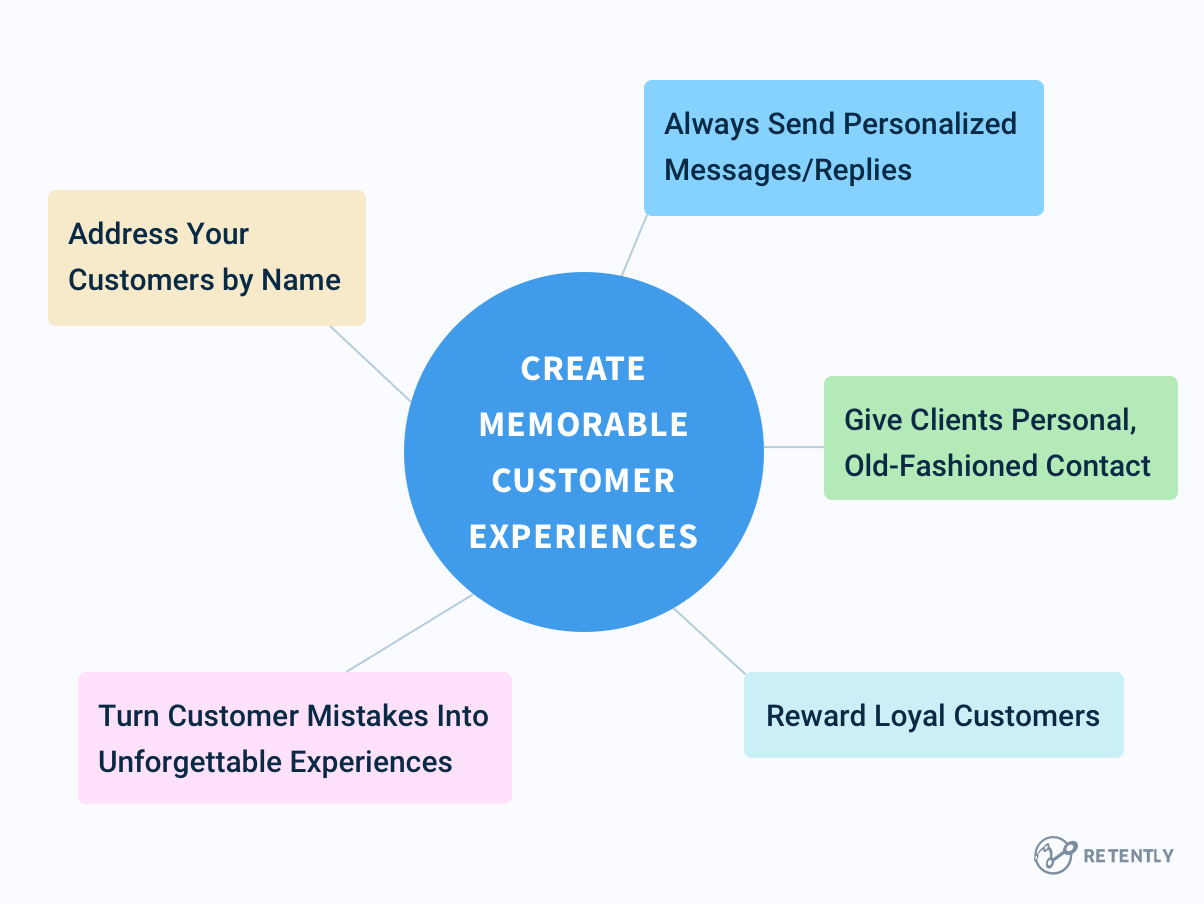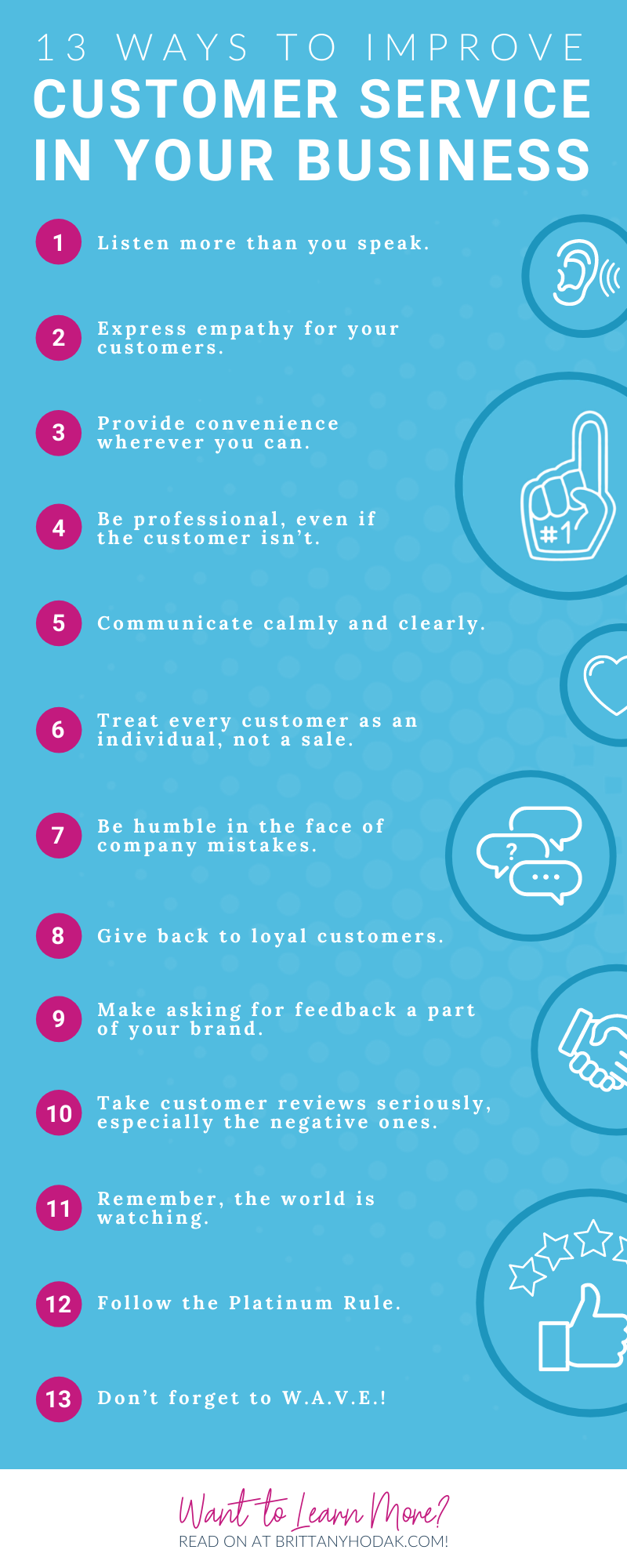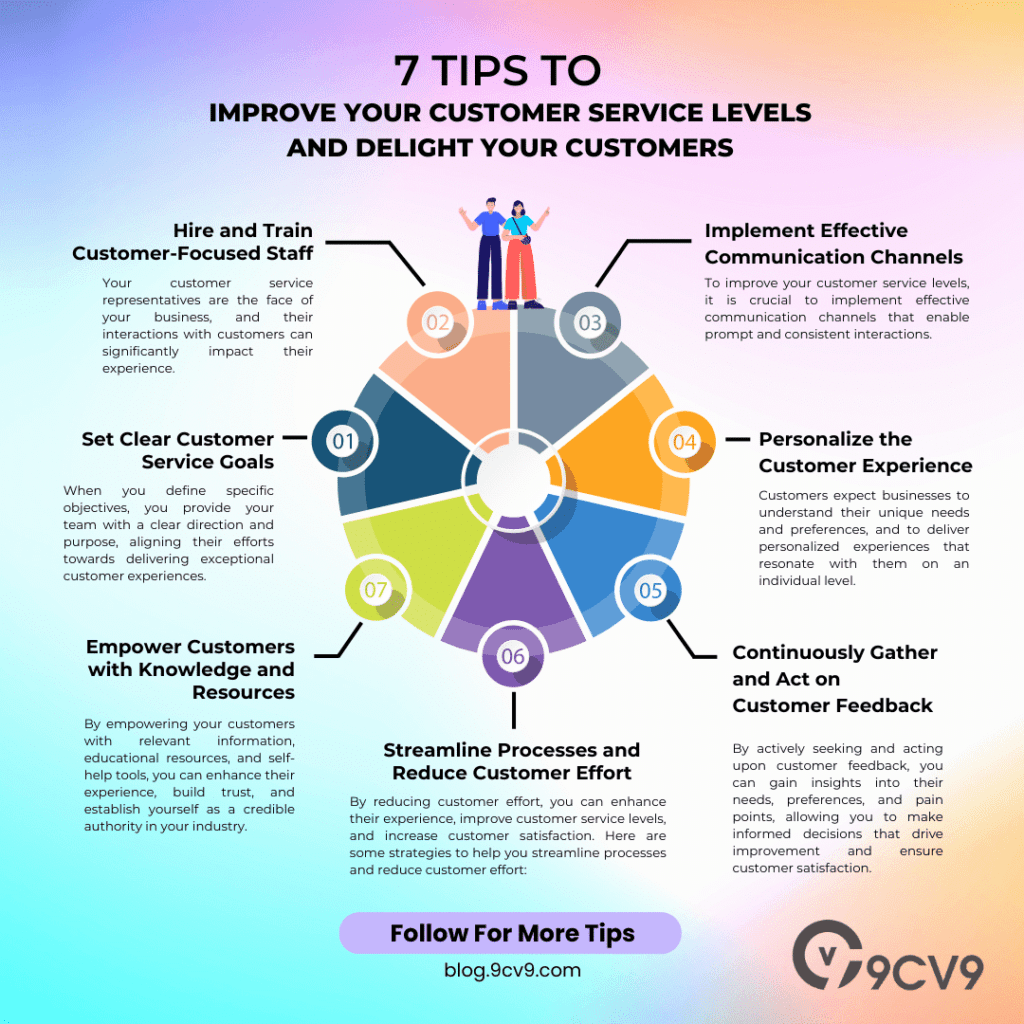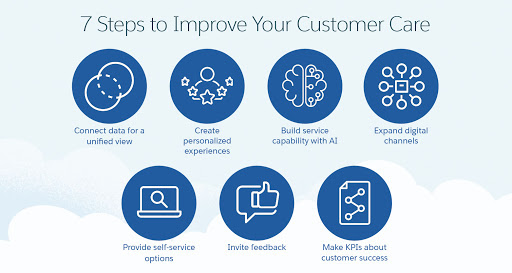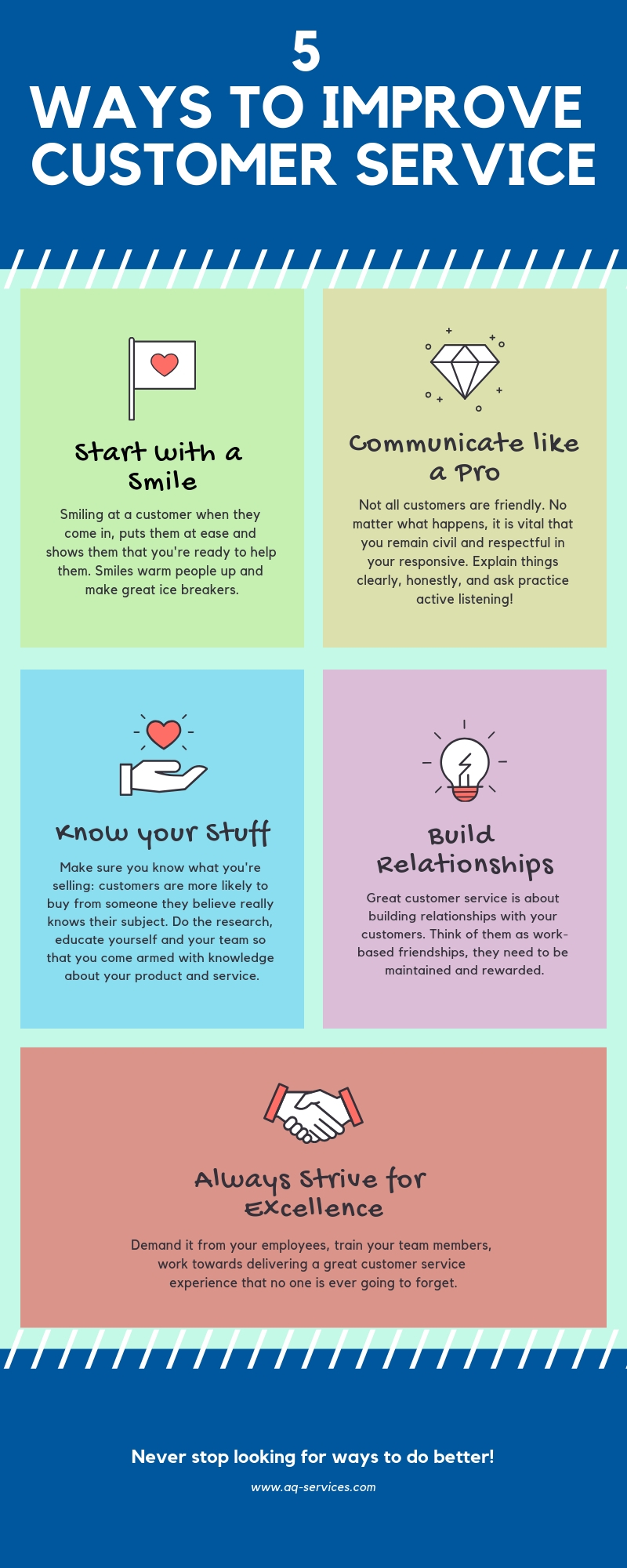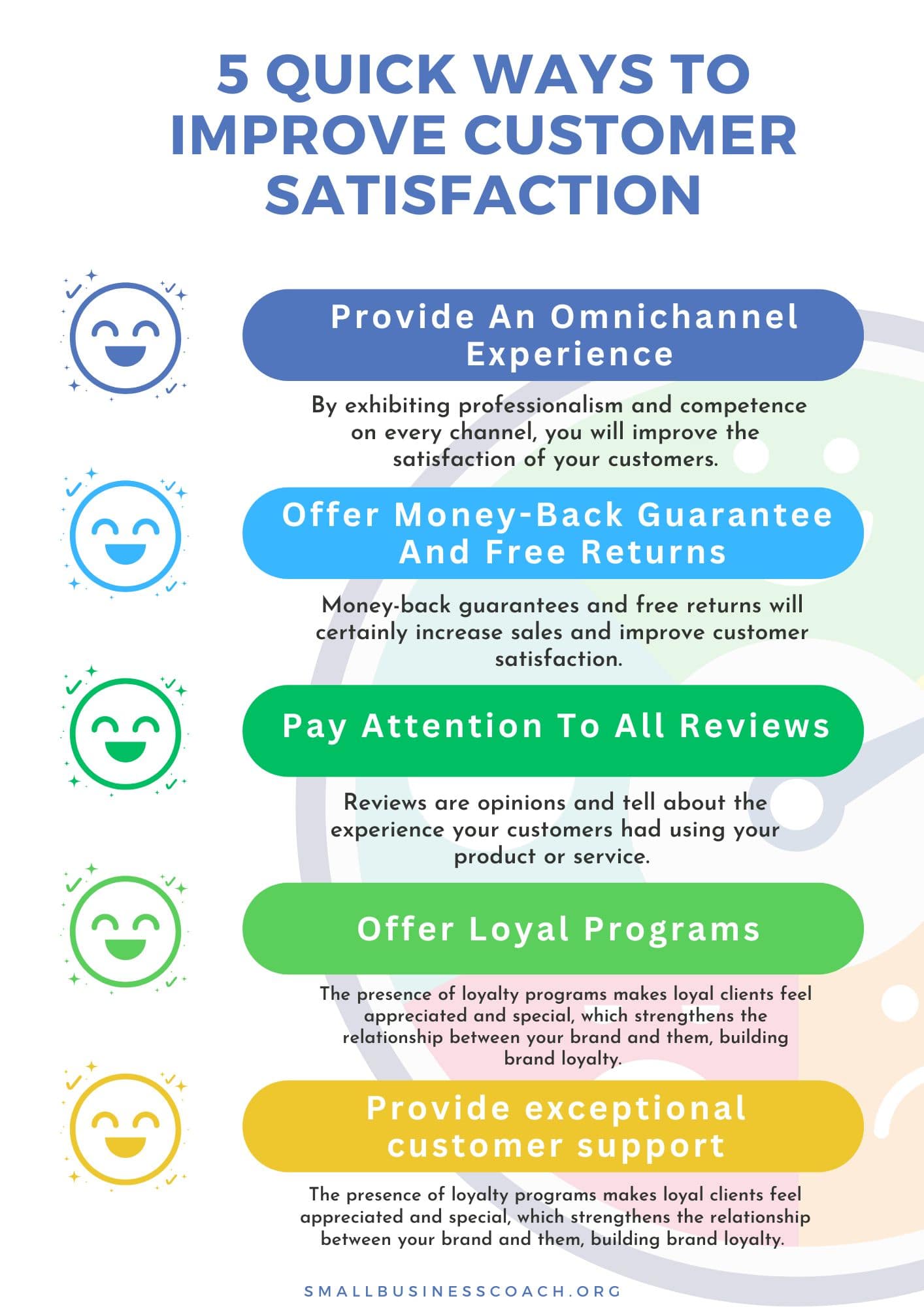How To Improve Your Customer Service

In today's competitive marketplace, exceptional customer service isn't just a bonus – it's a necessity. Businesses are increasingly recognizing that satisfied customers are the cornerstone of long-term success, and are actively seeking strategies to elevate their service standards.
This article delves into actionable steps companies can take to improve their customer service, drawing on expert insights and industry best practices. The goal is to provide businesses with a roadmap for cultivating a customer-centric culture that fosters loyalty and drives positive growth.
Understanding Customer Needs
The foundation of excellent customer service lies in a deep understanding of customer needs. This goes beyond simply fulfilling requests; it involves anticipating expectations and proactively addressing potential pain points.
Actively seeking customer feedback through surveys, online reviews, and direct communication channels is crucial. Analyzing this data allows businesses to identify areas for improvement and tailor their services to better meet customer demands.
Empathy and Active Listening
Empathy is a critical component of effective customer interaction. Training employees to understand and share the feelings of their customers can significantly improve the customer experience.
Active listening is equally important. This involves paying close attention to what the customer is saying, both verbally and nonverbally, and responding in a way that demonstrates understanding and concern.
"Customers want to feel heard and understood," explains Dr. Anya Sharma, a leading customer service consultant. "When they feel valued, they are more likely to remain loyal, even if they encounter occasional issues."
Empowering Employees
Frontline employees are the face of the company and play a pivotal role in shaping customer perceptions. Empowering them with the necessary training, resources, and authority is essential for delivering exceptional service.
This includes providing comprehensive product knowledge training, equipping them with efficient problem-solving tools, and granting them the autonomy to make decisions that benefit the customer.
By investing in employee development, companies can create a workforce that is confident, knowledgeable, and dedicated to providing outstanding customer experiences.
Streamlining Communication Channels
In today's digital age, customers expect to be able to interact with businesses through a variety of channels, including phone, email, live chat, and social media. Providing seamless and consistent service across all these channels is crucial.
Investing in integrated communication platforms can help businesses manage customer interactions more efficiently and ensure that no inquiry goes unanswered. Prompt and personalized responses are key to building trust and fostering customer loyalty.
Furthermore, regularly evaluating and optimizing communication channels based on customer preferences can lead to greater satisfaction and improved service delivery. Consider using AI powered chatbots to automate repetitive tasks.
Building a Customer-Centric Culture
Improving customer service is not just about implementing specific tactics; it's about cultivating a customer-centric culture throughout the organization.
This involves embedding customer-focused values into the company's mission, vision, and core principles. It also requires leadership commitment and a willingness to prioritize customer satisfaction in all decision-making processes.
By creating a culture where every employee understands the importance of customer service and is empowered to contribute to a positive customer experience, businesses can achieve sustainable improvements in customer loyalty and overall success.
"A customer-centric culture starts from the top," states Mark Olsen, CEO of CustomerFirst Solutions. "When leaders prioritize customer satisfaction and empower employees to deliver exceptional service, it creates a ripple effect throughout the entire organization."
Measuring and Adapting
Implementing customer service improvements is an ongoing process that requires continuous measurement and adaptation. Regularly tracking key metrics, such as customer satisfaction scores, resolution times, and churn rates, can provide valuable insights into the effectiveness of different strategies.
Analyzing this data allows businesses to identify areas where they are excelling and areas where further improvements are needed. Based on these insights, they can refine their approaches and adjust their strategies to better meet the evolving needs of their customers.
By embracing a data-driven approach to customer service, companies can ensure that their efforts are aligned with their goals and that they are consistently delivering exceptional experiences that foster loyalty and drive positive growth.
Investing in customer service is not an expense, but rather an investment in the long-term success of the business. By prioritizing customer satisfaction and continuously striving to improve the customer experience, companies can build lasting relationships, foster loyalty, and achieve sustainable growth.
Ultimately, improving customer service is about creating a positive and memorable experience for every customer. By understanding their needs, empowering employees, streamlining communication channels, and building a customer-centric culture, businesses can differentiate themselves from the competition and achieve lasting success.
